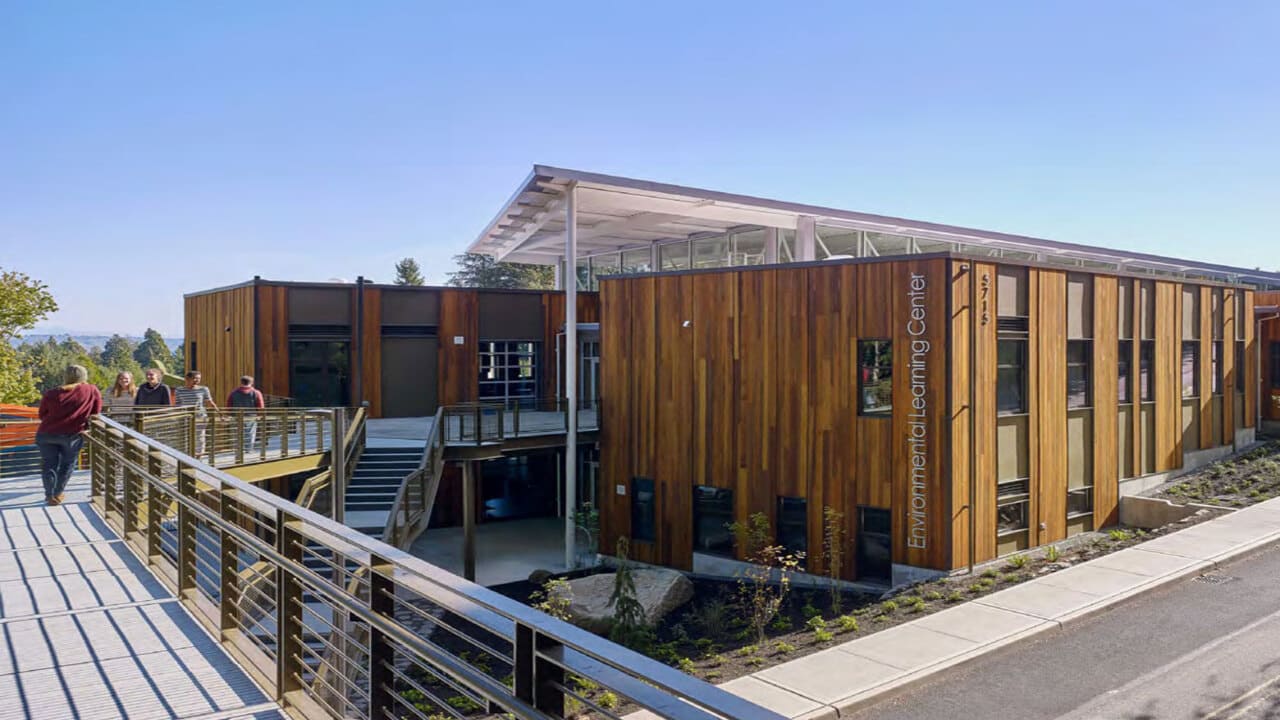
Meet Muscatine – The Environmental Learning Center (ELC) is one of Muscatine’s most unique educational and recreational destinations. Nestled on 85 acres of reclaimed prairie land in Discovery Park, the center serves as both a museum of natural history and a gateway to outdoor exploration. Its location off Cedar Street and Highway 61 makes it easily accessible while still preserving the feel of a natural sanctuary.
Discovery Park itself offers visitors a peaceful retreat from the city. The park’s thoughtful design integrates education, conservation, and recreation into a single cohesive space. Whether visitors come to learn about eastern Iowa’s ecosystems or simply enjoy a day outdoors, the Environmental Learning Center provides the perfect starting point.
Inside the Environmental Learning Center, guests are greeted with a variety of natural history exhibits showcasing the biodiversity of eastern Iowa. The center features aquariums and terrariums housing live reptiles, amphibians, and fish native to the region. Children and adults alike are fascinated by turtles basking on logs, snakes coiled in naturalistic habitats, and brightly colored fish swimming in crystal-clear tanks.
These live exhibits allow visitors to observe the behaviors of animals they might not easily encounter in the wild. More than just a display, the ELC emphasizes interactive education. Informational panels explain the role each species plays in the local ecosystem, while guided programs often invite guests to touch or even feed some of the animals under staff supervision. For many young visitors, this close-up encounter fosters a lifelong appreciation for wildlife and conservation.
Also Read : Community Gatherings at Muscatine Riverfront: Where Locals Come Alive
Surrounding the Environmental Learning Center, Discovery Park provides an extensive network of paved and grass walking trails. These trails wind through prairie land, wooded areas, and around two fishing ponds, offering plenty of opportunities for exercise, relaxation, and wildlife spotting. Birdwatchers especially enjoy the park’s diverse avian population, from red-winged blackbirds perched among tall grasses to herons gliding over the water.
In addition to the trails, the park is home to the Muscatine Arboretum, a living collection of trees and shrubs carefully curated to highlight the plant diversity of the region. The arboretum not only enhances the beauty of Discovery Park but also serves as a living classroom for students, gardeners, and naturalists. Each visit provides a different experience, as the landscape changes dramatically with the seasons—from blooming wildflowers in spring to golden prairies in autumn.
The Environmental Learning Center is more than a static museum; it is an active hub for environmental education. Throughout the year, the staff organizes workshops, guided hikes, and seasonal events aimed at connecting the community with the natural world. Local schools frequently bring students for field trips, where interactive lessons cover topics ranging from prairie restoration to aquatic ecosystems.
In addition, the center often collaborates with conservation organizations to host public lectures, citizen science projects, and volunteer opportunities. Families can attend weekend programs designed to engage children in outdoor play and exploration, while adults can participate in more specialized workshops on gardening with native plants or identifying invasive species. By blending fun and education, the ELC inspires people of all ages to think critically about the environment and their role in preserving it.
The impact of the Environmental Learning Center extends far beyond its physical exhibits and trails. It has become a cornerstone of community life in Muscatine, providing a gathering space where people can learn, relax, and connect with nature. Local residents take pride in the fact that the center sits on land once reclaimed from industrial use, symbolizing the community’s commitment to conservation and renewal.
Looking ahead, there are discussions about expanding programming, improving facilities, and introducing new exhibits that highlight global environmental issues alongside local ecology. The goal is to continue fostering environmental stewardship while adapting to the educational needs of future generations. For Muscatine, the ELC is not just a park attraction but a vision for a sustainable future rooted in education and community engagement.
Read More : Visiting Beach: Natural Way to Relieve Stress and Inspire a Healthier Lifestyle
Among Discovery Park’s highlights, the Muscatine Arboretum deserves special mention. This carefully maintained collection of trees, shrubs, and flowering plants provides an invaluable resource for anyone interested in botany or landscaping. Seasonal tours of the arboretum often highlight the unique adaptations of local and introduced species, while interpretive signage makes self-guided exploration equally rewarding.
For students, the arboretum serves as an outdoor classroom where lessons in biology, ecology, and even art come alive. For families, it offers a serene environment to stroll and appreciate the beauty of nature. The arboretum’s role in complementing the Environmental Learning Center underscores the park’s broader mission: to connect people with the natural world while cultivating curiosity and respect for the environment.
This Article About Environmental Learning Center Written by: Sarah Azhari | Editor: Micheal Halim
Information Source: VisitMuscatine.com